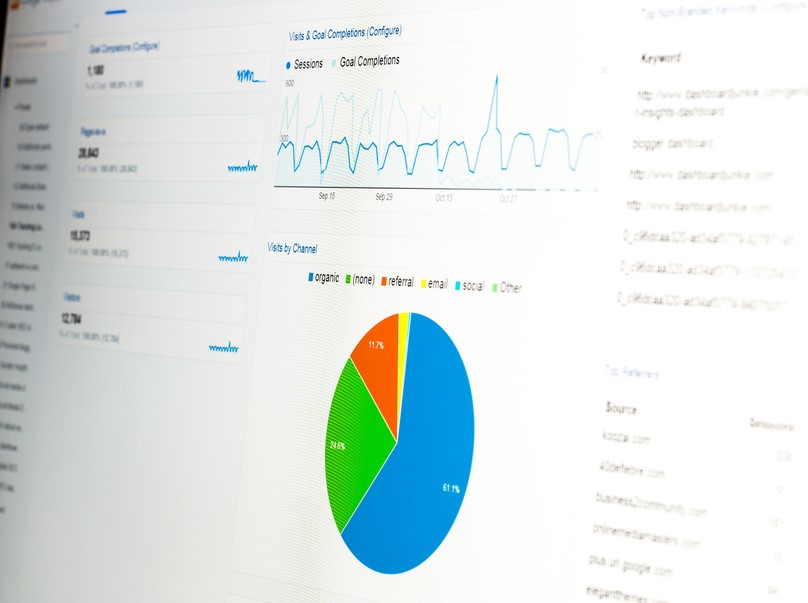Google Analytics 4: what will change?
From July 1, 2023, Google will stop using Google Analytics as you know it, and you will have to switch to Google Analytics 4. But why are they doing this? What exactly will change? And what are we doing to make this transition as smooth as possible? You can read all about it in this blog about Google Analytics 4!
Anyone who logs in to Google Analytics will see a notification that the switch to Google Analytics 4 must be made before the 1st of July, 2023. If you don't switch, no more data will be collected. The old version of Analytics, also known as Universal Analytics, will expire on that date.
What is the difference between Universal Analytics and Google Analytics 4?
The basis of Analytics is - of course - that data is collected from your visitors and users - that does not change. But the way Google collects the data is changing: because more and more browsers are blocking cookies, numbers in Analytics are becoming less reliable.
Therefore, no cookies are used within Google Analytics 4.
Another key difference is that Google Analytics 4 looks at events, while Universal Analytics relies on page views.
You can set an event yourself, but Google Analytics 4 also measures a number of events by default:
- Scrolls
- Pageviews
- Video engagement
- Outgoing clicks
- Search queries on the site
- File downloads
Even if you do not alter the default settings, you will already gain good insight into the behaviour of your visitors.

From bouncer to engagement
The bounce rate as you know it will also disappear: a visitor who spends 45 seconds on a page would be a bouncer according to the old measuring method. That is not quite right because that user has spent 45 seconds on your site.
The new value "engagement rate" replaces this: even if a visitor only visits 1 page, he can be involved! An affected user meets 1 of these conditions:
- A conversion has been completed
- The website is open for at least 10 seconds
- At least 2 events are taking place
This is calculated automatically, even if you do not set anything in your own account.
Less standard reports
Another important difference is that there are fewer standard reports in Google Analytics 4. So you must set up your own reports to get a proper overview. That takes more time than with Universal Analytics, where everything was more or less set up ready-made.
Privacy settings
With the introduction of Google Analytics 4, Google is also trying to address the concerns around online privacy. For example, no more IP addresses of users are gathered and processed. You can also determine whether Google Analytics 4 data may be used for online marketing campaigns.
Disabling the new feature “Google signals data collection”, and combined with the fact no IP addresses are stored, makes Google Analytics 4 more privacy-friendly. With these steps, Google naturally meets the objections that have arisen in the past year.

Garden Connect & Google Analytics 4
There are two ways to set up Google Analytics 4:
- Via Google Tag Manager
- A direct integration with your website/webshop
The integration via Google Tag Manager has been available since October 1, 2021. You can set up Google Tag Manager and choose to use Google Analytics 4, Universal Analytics or both on your website or webshop. You can set up and configure Google Tag Manager yourself and send the tags to support@gardenconnect.com.
You can also download our standard containers and import them into your own Google Tag Manager account. You then have a good starting point to set up both Universal Analytics and Google Analytics via Google Tag Manager.
Remember that we do not offer support for setting up Google Tag Manager ourselves; this is just a tool from Google, and you can find documentation on how this works online. If you still want support, we can fully set up Google Tag Manager for you. Please contact your account manager for this.
December 1, 2022
You can set up the direct integration between your website and Google Analytics 4 yourself from December 1, 2022. All you have to do is convert your Google Universal Analytics account to Google Analytics 4, more info on the Google support page. You will then receive a code, and you can link this code to your website or webshop from 1 December.
You can also do this yourself by logging into your Google Analytics account and following the steps.
We can arrange the transition and set this up for you if you still want support. Please also contact your account manager for this.



